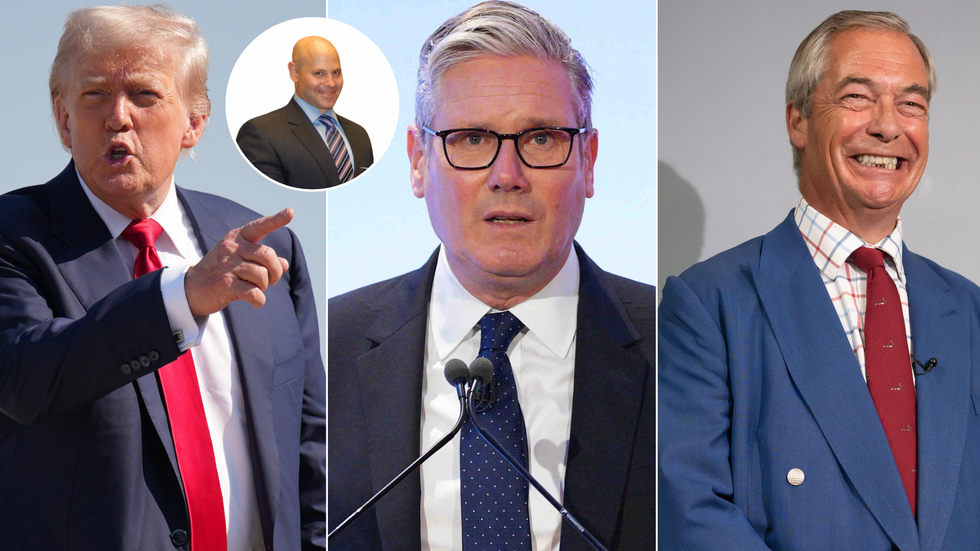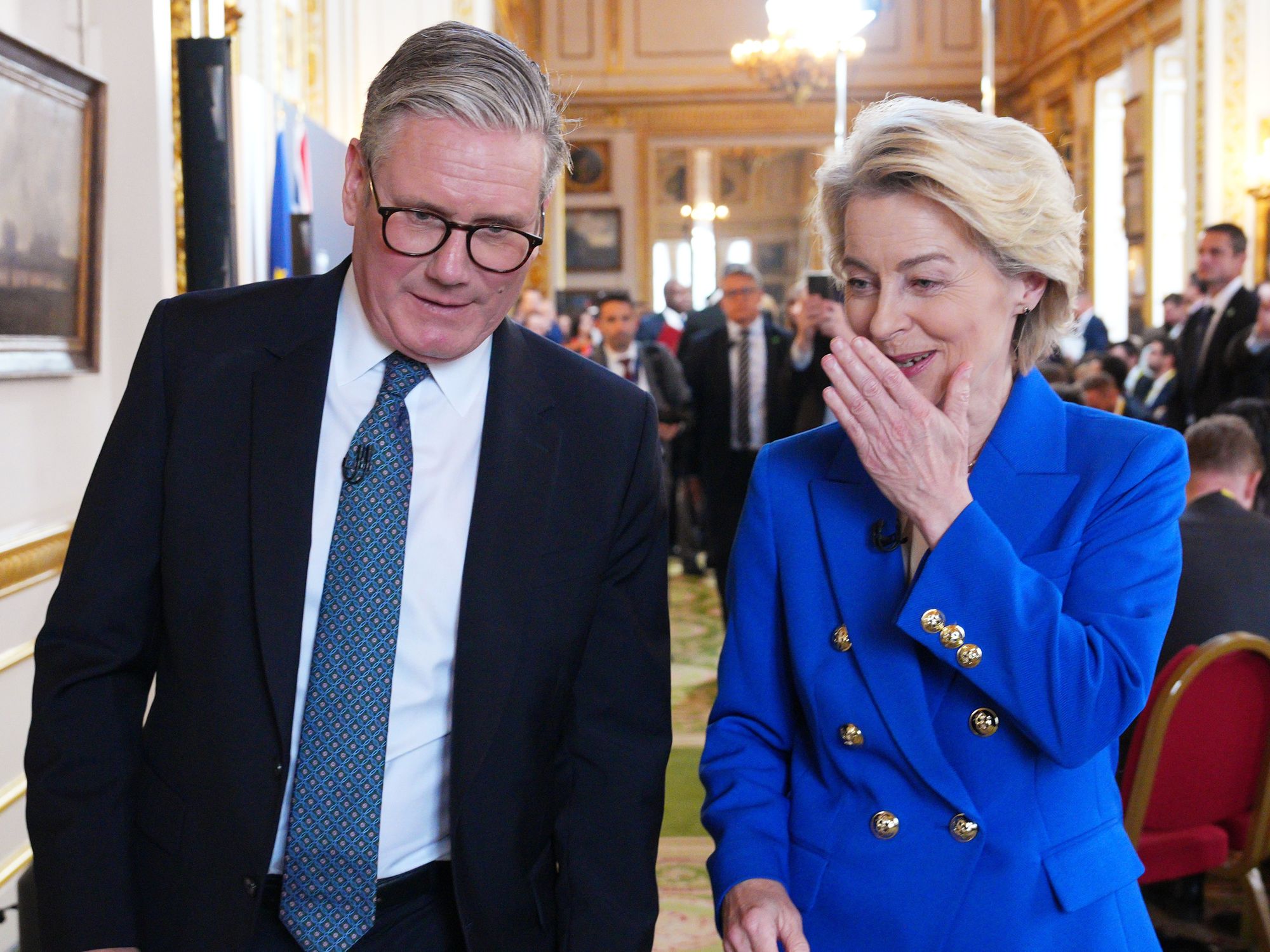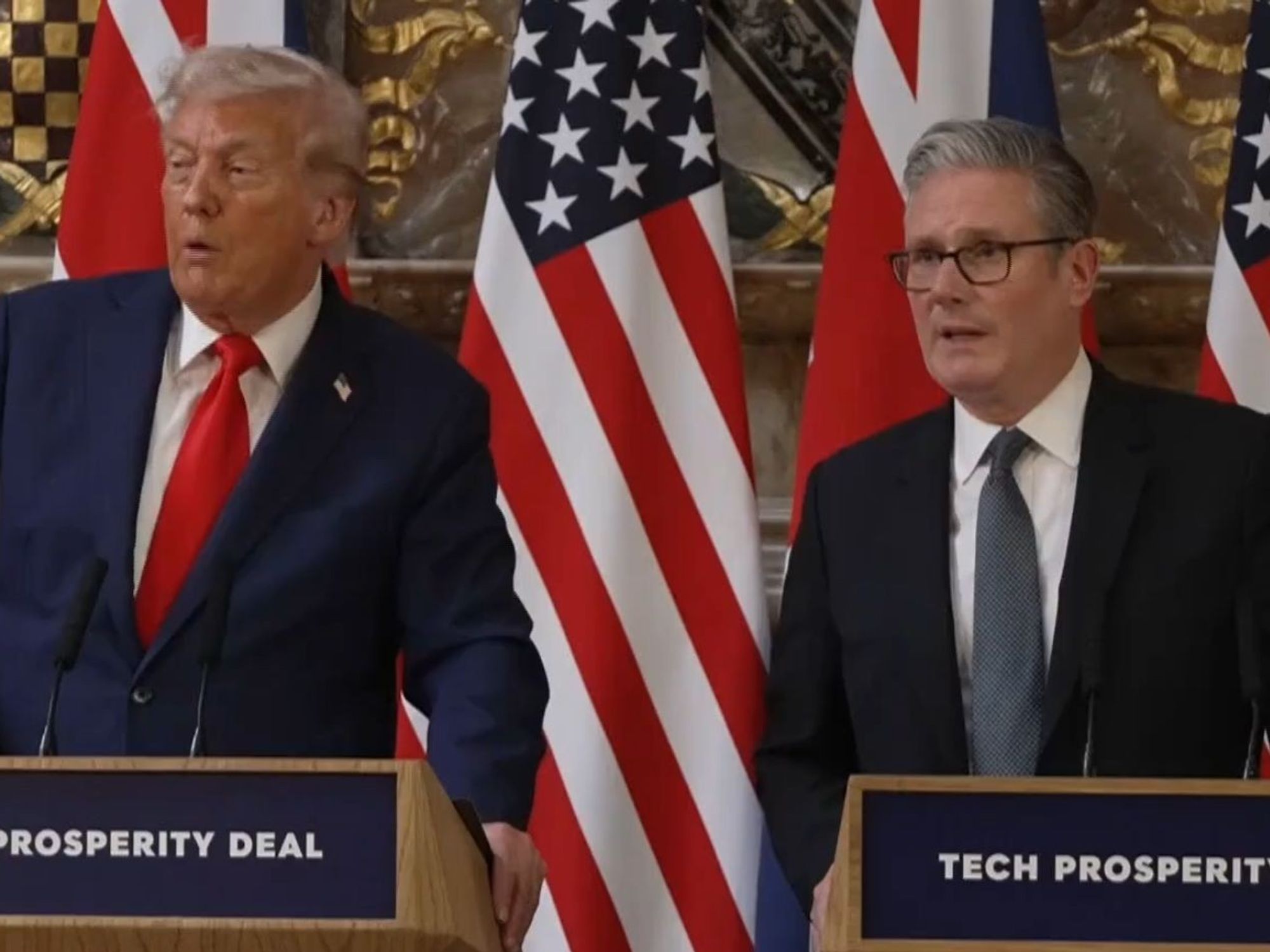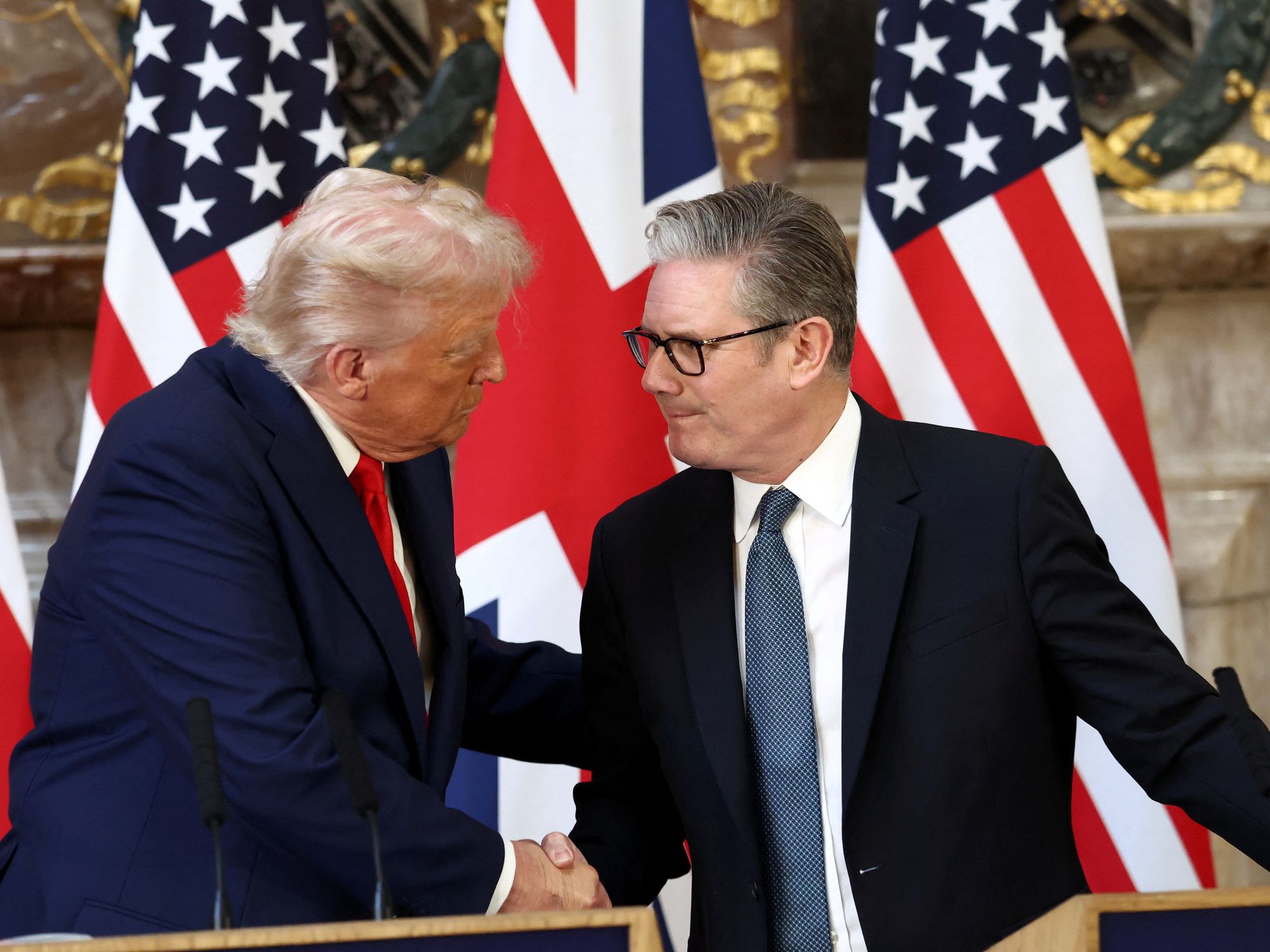Donald Trump just ignited Reform UK's fire by extinguishing Labour’s. This is a watershed moment - Lee Cohen
GB
Donald Trump's commanding presence mirrors Nigel Farage’s no-nonsense style
Don't Miss
Most Read
Trending on GB News
What a week for Donald Trump—a whirlwind of triumphs that left Keir Starmer looking like a beleaguered bystander in his own country.
While Trump’s bold vision is spelling economic glory, Starmer stumbled through real-world humiliations, from rural revolts to diplomatic humiliation.
For Britain’s frustrated voters, Trump’s swagger is a shot in the arm for Reform UK’s surge while laying bare Labour’s struggles under a faltering Prime Minister. This is the tale of two leaders: one soaring, the other sinking, and a nation impatiently awaiting change.
Trump’s week was a masterclass in economic and diplomatic dominance. At his Turnberry golf club in Scotland, he continued to discuss a U.S.-U.K. trade deal that slashed tariffs on British cars and steel while opening doors for American farmers—a coup for his “America First” playbook.
Just days later, he outmanoeuvred the EU, securing a US-EU trade deal that favoured U.S. exports and loosened Brussels’ regulatory chokehold.
These victories weren’t just talk; they powered America’s economy to a sizzling 3% GDP growth in Q2 2025, fueled by Trump’s tax cuts and strategic tariffs.
His formula—bold deals, low taxes, and unapologetic nationalism—delivered prosperity that Britain can only envy. Meanwhile, Starmer’s Britain teeters on the edge of recession.
His 20 per cent inheritance tax on farms above £1million has sparked rural fury, with farmers marching in protest. National Insurance hikes and soaring bond yields signal economic chaos.
For voters craving economic freedom, Trump’s triumphs shine a light on Reform UK’s low-tax, pro-sovereignty vision—a stark rebuke to Labour’s mismanagement.

Donald Trump just ignited Reform UK's fire by extinguishing Labour’s. This is a watershed moment - Lee Cohen
|Getty Images
Across the Atlantic, Trump’s energy ignites fires that Reform UK fans at home. His commanding presence—whether envisioning trade wins or critiquing borders—mirrors Nigel Farage’s no-nonsense style.
Trump’s week wasn’t just about deals; it was a showcase of anti-establishment ascendancy. Imagine him calling out London’s mayor, Sadiq Khan, or urging Britain to “stop the boats” and slash taxes—echoes of Farage’s rallying cry.
Reform UK is gaining ground, polling at 18 per cent in 2025, closing the gap on Labour’s 28 per cent, per recent surveys. They capitalise on voter disgust with Starmer’s perceived elite disconnect, exacerbated by his focus on fiscal restraint over populist promises.
Trump’s ability to dominate headlines while rallying his base offers a blueprint for Reform’s rise. His economic vision—proof that populism can inspire—emboldens voters to reject Labour’s bureaucratic approach.
As Starmer’s approval rating slides to -38, per YouGov’s January 2025 poll, Reform UK’s momentum grows, fuelled by shared belief in national pride and economic independence. Trump’s bold narrative isn’t just America’s gain; it’s a spark for Britain’s populist rebellion.
Starmer, by contrast, spent the week mired in setbacks. His government defends the farm tax as necessary to fund public services, but rural voters see betrayal.
A 30 per cent rise in small boat arrivals in 2024, per Home Office data, exposes border control weaknesses, amplifying calls for tougher measures.
Policy reversals—restricting winter fuel payments to pensioners on benefits and scaling back welfare reforms—paint a Prime Minister adrift, though Labour argues these reflect fiscal pragmatism.
Starmer’s alignment with EU standards, aimed at trade stability, risks Brexit’s gains, alienating sovereignty-minded voters. Diplomatically, he struggles to counter Trump’s shadow; their contrasting styles highlight Starmer’s caution against Trump’s bluster.
The 2025 Budget’s £40 billion tax rise, including National Insurance hikes, has drawn criticism for stifling growth, though Starmer insists it’s vital for NHS funding.
As Labour’s poll numbers dip, Starmer’s challenges hand Reform UK an opportunity. Voters see a leader struggling to deliver—economically, diplomatically, and culturally—and turn to Farage’s Trump-inspired vision for answers.
Britain finds itself at a watershed moment. Trump’s triumphs—trade wins, economic surges, and populist fire—show what bold rhetoric can inspire. His narrative lifts Reform UK, proving that anti-establishment ideas resonate with voters tired of the status quo.
Starmer’s setbacks, from rural unrest to border challenges, suggest competence strained by tough choices. His tax rises and globalist leanings, while framed as responsible governance, frustrate those craving dynamism, and his -38 approval rating signals a party under pressure.
Reform UK, with its call for lower taxes, stronger borders, and national pride, channels Trump’s energy. Voters are stirring, and Labour’s grip is weakening.
Britain deserves leadership that balances pragmatism with ambition and favours results—not one overshadowed by Trump’s bravado. It’s time to embrace a future inspired by bold ideas—unapologetically for the people. 2029 cannot come soon enough.










